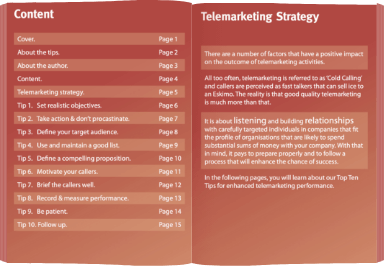Have you ever been confronted with a cold caller that loves to talk to you? Doesn’t feel great, does it? You wouldn’t want to spend your days receiving these kinds of nuisance calls, would you? How would you feel if your calls were perceived in this way?
There are a number of question types and questioning techniques with which most telemarketers should be familiar. If not, they need to learn them fast. The above include open, closed, and leading questions.
Questions, coupled with listening to the answers, are essential tools in a cold caller’s armory. It’s unlikely that they will achieve successful telemarketing calls if they don’t master the art of asking good questions.
Why Ask Questions?
In truth, this should be pretty simple to understand. We need to ask questions not least to ensure that we salespeople don’t monopolize the conversation. You can’t build rapport without asking relevant questions that demonstrate interest. Questions enable telemarketers to:
-
-
- Obtain Information – Without good information on genuine customer needs, how can you offer relevant solutions for their requirements?
- Maintain control of a conversation – If you do the asking you are more likely to be in control and come across as more sincere and assertive
- Express an interest in the other person – Since questions enable you to find out more about the customer, they help you to relationship-build, show greater empathy, and get to know the other person and their needs better.
- Clarify key points–Questions support understanding. Too often, a misunderstanding leads to conflict and that certainly won’t support your sales efforts. It’s essential in more effective communication to really understand buyer challenges, needs, and preferences.
-
The main question types that are commonly used in lead generation are:
Closed Questions
These provide the caller with Yes or No answers. This isn’t all bad as they are filter questions that can guide the conversation and especially your next question e.g.
Q: Do you have much need for that?
A: No.
The no can be followed up by the next type of question i.e. an open question i.e. Why is that?
Closed Questions are useful for
-
-
- Qualifying or filtering: “Do you use protective clothing in the manufacturing process?”
- Testing understanding: “Have I understood that correctly?”
- Moving to or making a decision: “Are you happy with that as an outcome before we move on?”
- Gaining context: “Do your current suppliers do that?” – Note that you could use an open question here e.g. “How do your current suppliers handle that?”
-
Open Questions
Open questions give much greater cope for building rapport and engagement and for gathering essential information for the sales process whether for now or the future. They enable telemarketers to:
-
-
- Develop the conversation: “What did you find worked best for you last time?”
- Find out more information: “What else do we need to do to make this work for you?”
- Clarify views, opinions, or issues: “How do you feel about that as an issue?”
-
A typical open question will typically start with: who, what, where, when, how, why? For example:
-
-
- Who is responsible for buying IT?
- Where do you normally source consumables?
- What could your current supplier do to improve?
- Why do you handle telemarketing in-house?
- When do you review your supplier contracts?
- How will you handle the new legislation?
-
Leading Questions
I like these since they enable the caller (subtly) to point the customer in the direction they want to go. For example, you might ask, ‘How are you getting on with plans for the office move?’ This question prompts the prospect to consider how far they’ve progressed and whether there are any gaps.
The aim is to achieve the answer you want but the buyer feels that they have had a choice in the discussion. This approach leads the respondent (using auto-suggestion) in the direction you want to go e.g.:
-
-
- “If I could guarantee 24 hour turnaround but maintain the current price, that would be a benefit to you wouldn’t it?”
- “If you’re happy with that, why don’t we set a time to get going?”
-
Questioning techniques are vital skills in telemarketing and the caller needs to know when to use them and what to ask, in order to shake the prospect out of their comfort zone to persuade them to engage and agree to whatever the caller wants to achieve as an outcome.
We have one mouth and two ears and should use them in that proportion. To do that effectively, a telemarketer must learn how to ask good questions and how to listen to the answers given without interrupting.
Build good questions into your call planning. Think about the key concerns or opportunities for your buyer and build good questions in advance of your call that allows you to empathize and to promote what you do as a solution. If you do that, you will guarantee for yourself better telemarketing results.
Need more input on your telemarketing calling? Take a look at our in-house telemarketing courses. Or, if you need greater traction for your campaign, contact us about our B2B Telemarketing services.
And don’t forget to check out our other telemarketing tips.






